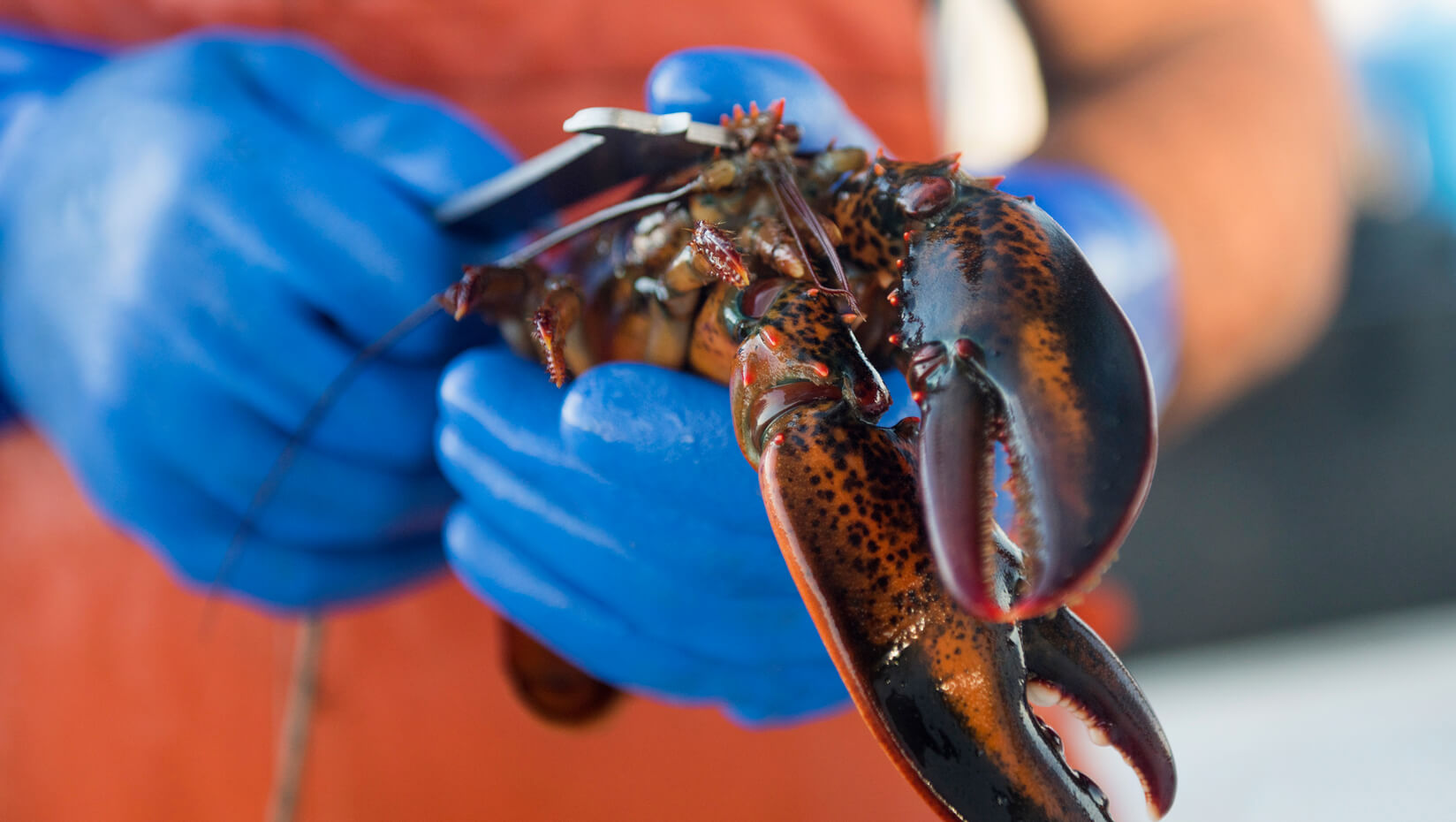
DMC researchers test technique to determine lobster’s age
Research professor Rick Wahle and graduate student Carl Huntsberger are testing a technique at the University of Maine Darling Marine Center to determine the age of lobsters.
Unlike fish, mollusks and trees, Wahle says lobsters and other crustaceans molt — or cast off their skeletons thereby discarding external signs of growth.
That means a lobster’s age is estimated on size, but it’s a rough determination because ocean conditions affect the crustacean’s growth rate.
Not knowing a lobster’s age is problematic for scientists and fishery managers seeking to measure the health of the fishery and the sustainability of the stock.
Recent research by Raouf Kilada of the University of New Brunswick revealed that lobsters and other crustaceans have internal structures that exhibit growth patterns similar to tree rings.
Kilada found tree-ring-like microscopic bands, less than 1 millimeter thick, within a lobster or crab’s gastric mill— which is a part of the stomach that grinds food.
Kilada recently visited the DMC to share his technique with Wahle and Huntsberger. Kilada provided hands-on instruction that he’s perfected during many hours of trial and error.
“At this point, we are able to dissect lobsters that have been held in captivity for three years after staining the gastric mill with a fluorescent dye, which marks when we began our observations,” says Huntsberger, who is processing samples in the Wahle Lab.
The growth bands are located in the ossicles, which are tiny plate-like structures in the stomach that facilitate grinding of food.
To process a sample, ossicles are embedded in epoxy and cut into 150-micron sections. The number of bands can be counted with the use of a microscope. For reference, the thickness of a human hair is about 75 microns.
Huntsberger says preliminary data indicate the bands do show annual growth patterns.
The Maine Department of Marine Resources and Maine Sea Grant are funding the project.
Contact: Melissa Wood, 207.479.0660
